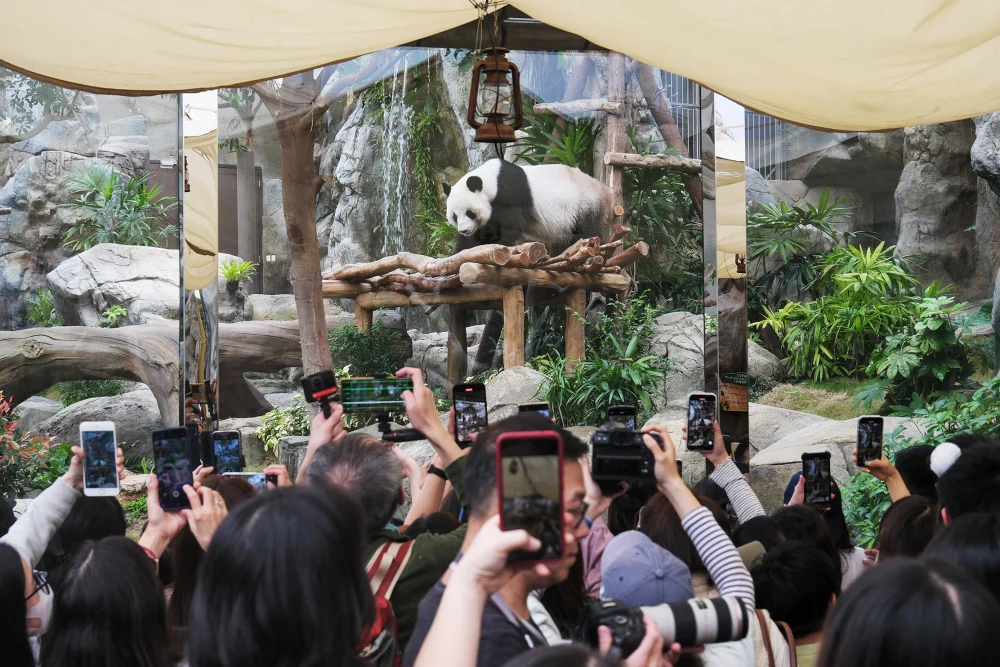Hong Kong is once again swept up in a wave of panda fever as residents eagerly submit name suggestions for the territory’s first locally born giant panda cubs, who have just turned six months old.
The competition to name the twin cubs—born on August 15—was officially launched on Saturday, following a celebratory ceremony at Ocean Park attended by Hong Kong leader John Lee and other officials. As the home of the cubs, their parents, and two other giant pandas that arrived from mainland China last year, Ocean Park has become the center of the city’s growing panda craze. Residents can submit their name suggestions via the park’s website, with the final names set to be announced in the first half of the year.
Hong Kong now boasts the largest number of pandas in captivity outside mainland China. The twin cubs, currently referred to as “Elder Sister” and “Little Brother,” will make their highly anticipated public debut on Sunday, with daily visiting hours set at five hours. For those eager to spend additional time with the cubs before the park officially opens, a special early-access session is available for 1,500 Hong Kong dollars (approximately $190).
During a media preview on Saturday, the playful male cub was seen lying on a swing, gnawing on a tree stick before a caretaker placed him on a slide. Meanwhile, his adventurous sister roamed the enclosure, climbing a tree. Panda caretakers noted the female cub’s energetic personality—she enjoys scaling trees and resting high above the ground, while her brother prefers exploring and playing among the plants. To distinguish between the twins, caretakers have marked the male cub with two small purple food-coloring spots on his back.
The cubs’ birth last year was a historic milestone, making their mother, Ying Ying, the world’s oldest first-time panda mother. Their arrival has sparked a surge in social media attention, which officials hope will translate into a boost for Hong Kong’s tourism sector. Some lawmakers have even dubbed this phenomenon the “panda economy,” urging businesses to capitalize on the public’s enthusiasm.
Ocean Park’s chairman, Paulo Pong, confirmed that the panda craze is already having a positive financial impact on the park. Increased visitor numbers during Christmas and the Lunar New Year holidays, following the arrival of the pandas from mainland China, have led to a notable rise in income.
“We’re turning the page, and we believe the pandas are definitely helping the park’s revenue,” Pong stated.
However, the cost of caring for pandas in captivity remains significant. Ocean Park reported a financial deficit of 71.6 million Hong Kong dollars ($9.2 million) in the last fiscal year and previously required a government relief fund in 2020 to stay afloat. With six pandas now under its care, observers are watching closely to see whether this addition will further strain the park’s finances or provide an opportunity for revival.
Pong emphasized that raising pandas is about more than just financial considerations. “It’s about animal conservation and education, not just a money exercise,” he said.
Giant pandas, considered China’s unofficial national mascots, have long played a role in Beijing’s soft-power diplomacy. The country’s giant panda loan program, which places pandas in zoos around the world, continues to serve as a symbol of goodwill and international cooperation.
